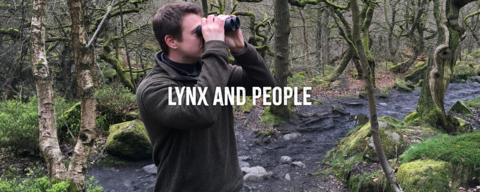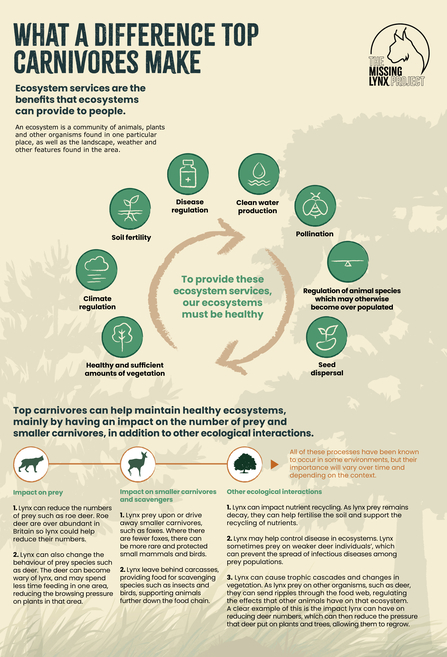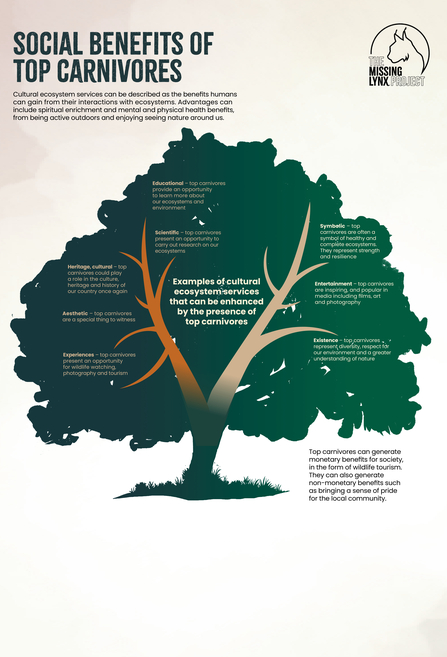
With lynx making a comeback across Europe, there are many places where they now live alongside people. Lynx are very elusive animals, so most people are unlikely to see one, but they still influence lives in a variety of ways.
The benefits of lynx
Lynx can play a key role in restoring ecosystems and making them healthier. Healthy ecosystems in turn can provide humans with a range of benefits, known as ‘ecosystem services’. These can include clean water production, disease and climate regulation, and seed dispersal.

Top carnivores like lynx also provide a wide range of social benefits, including a potential opportunity for nature tourism. Since lynx were reintroduced to a region of Germany, they are estimated to have encouraged a spend of around £10 million per year. People know they are unlikely to see a lynx, but are still attracted by the prospect of walking in the same woodland as them, knowing a lynx could be nearby.
Lynx also present an exciting educational opportunity, offering a chance to learn more about our ecosystems and the interactions that keep them healthy.
Workshops and focus groups will investigate community interest in business opportunities. You can find out more, including how to get involved, here.

Lynx and conflict
Lynx are elusive and solitary animals. They avoid humans wherever they can and hunt in woodland. Lynx do not generally pose a problem for people and are extremely unlikely to stray near well-visited areas.
Lynx are not dangerous to people. You’re unlikely to ever even see a lynx. It is also extremely unlikely that lynx will attack pets.
Lynx and livestock
Lynx are known to occasionally kill sheep in European countries where they occur. However, this is relatively rare. Lynx mainly prey on roe deer, which share the lynx's woodland home. The number of lynx attacks on sheep varies between countries, due to factors such as livestock farming practices.
In Europe, there are a range of measures that are used to prevent attacks on sheep. This includes livestock guardian dogs, which warn the sheep and chase off carnivores. Compensation schemes are also often used to reduce the financial impacts to livestock owners if sheep are lost.
Workshops and focus groups will investigate the likely risk in Britain, what practical methods might be appropriate, and how compensation should be managed. You can find out more, including how to get involved, here.
